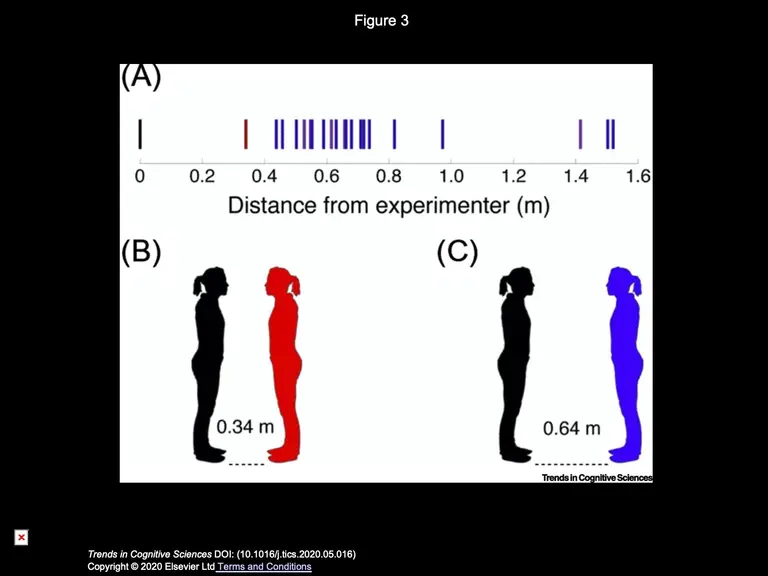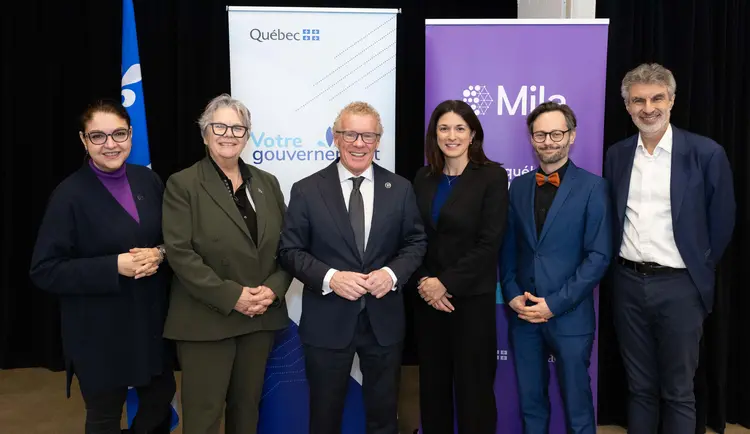
Social distancing is a critical measure to manage the spread of the coronavirus. New research demonstrates that social isolation poses its own threat, not just to our mental health, but to our physical health, and even to human survival.
Canada CIFAR AI Chair Danilo Bzdok is a collaborator on one of the largest and most comprehensive research studies dedicated to understanding the impact of social isolation on the brain.
Bzdok is an associate professor at McGill’s Faculty of Medicine and Department of Biomedical Engineering as well as an appointed faculty member of Mila, the Quebec Artificial Intelligence institute. Together with Oxford University's Robin Dunbar, the research team has applied machine learning techniques, including state-of-the-art pattern recognition and predictive analytics to analyze data from thousands of participants across various research studies.
Bzdok describes it as a once in a life-time opportunity to study social isolation and its impact on human neurobiology on a mass scale.
“The human brain is special, and the role of social interaction has shaped the path of humans for thousands of years. We need to better understand what the consequences of social isolation are,” says Bzdok.
Social isolation impacts our brain function, our ability to fight off infection, and response to vaccines
The researchers found that social isolation has a significant impact on reasoning and memory performance. Prolonged feelings of loneliness stemming from social isolation increases our risk of diseases such as Alzheimer’s, dementia and depression.
The quality and quantity of social relations of a human individual is a strong predictor of life expectancy. One study examined 148 epidemiological studies of approximately 300,000 people and found that people who smoked and lacked a support system and didn’t have a strong social network were more likely to die of cardiac disease than those who were more socially integrated.
It could also impact our ability to fight off COVID-19 and other types of infections. People who are well socially connected have better biomarkers for physiological function. They have lower systolic blood pressure and lower body mass index, and they have lower levels of C-reactive protein which is responsible for managing inflammation in the body. Individuals who had large social networks had a stronger immune system responded more favorably to vaccines.
Social interaction the key to human survival
Individuals who are chronically lonely, explains Bzdok, are more likely to perceive signals from others as more negative than they actually are. This perception could result in individuals having negative relationships with others. Bzdok says that lonely people tend to get lonelier over time because of these skewed perceptions. Lonely people also tend to gravitate towards people with similar perceived views, making loneliness contagious.
According to Bzdok, social interaction is a critical ingredient to the longevity of humans, noting that it defines us as human beings.
“Social interaction is what makes the human species special,” says Bzdok. “If social interaction and social exchange with fellow humans is potentially the most relevant source of information and input to humans, it goes without saying there will be significant consequences if a huge part of this daily social interaction goes away.” he explains.
A significant challenge in post-COVID-19 times is continuing social interaction while maintaining distance.
“In these challenging times, we have to accept a trade-off that comes with the preventative measures of social distancing that are required to prevent health system overload,” says Bdzok. “However, there is research that indicates that social interaction can be reasonably compensated by modern media, as long as there’s a visual component.”
Platforms such as Zoom and FaceTime provide a subjective perception of high quality social interaction, even more so than text messaging or phone calls alone, he says. Activities such as eating with family and friends, dancing and touch are important elements of building a sense of connection and community and combating the harmful effects of social distancing.
“What is important is that we engage in activities that create a sense of connectedness, community and belonging,” Bzdok says.
Source: CIFAR
Individuals who are chronically lonely, explains Bzdok, are more likely to perceive signals from others as more negative than they actually are. This perception could result in individuals having negative relationships with others. Bzdok says that lonely people tend to get lonelier over time because of these skewed perceptions. Lonely people also tend to gravitate towards people with similar perceived views, making loneliness contagious.
According to Bzdok, social interaction is a critical ingredient to the longevity of humans, noting that it defines us as human beings.
“Social interaction is what makes the human species special,” says Bzdok. “If social interaction and social exchange with fellow humans is potentially the most relevant source of information and input to humans, it goes without saying there will be significant consequences if a huge part of this daily social interaction goes away.” he explains.
A significant challenge in post-COVID-19 times is continuing social interaction while maintaining distance.
“In these challenging times, we have to accept a trade-off that comes with the preventative measures of social distancing that are required to prevent health system overload,” says Bdzok. “However, there is research that indicates that social interaction can be reasonably compensated by modern media, as long as there’s a visual component.”
Platforms such as Zoom and FaceTime provide a subjective perception of high quality social interaction, even more so than text messaging or phone calls alone, he says. Activities such as eating with family and friends, dancing and touch are important elements of building a sense of connection and community and combating the harmful effects of social distancing.
“What is important is that we engage in activities that create a sense of connectedness, community and belonging,” Bzdok says.
Source: CIFAR





